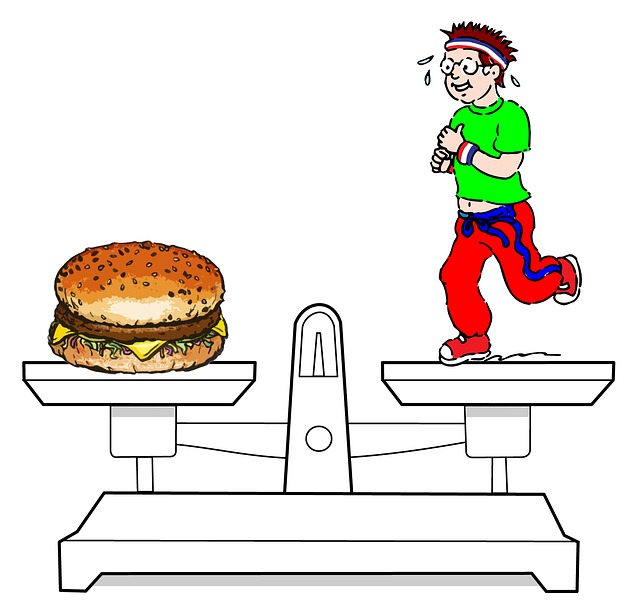If you think weight loss is all about crazy crash diets and weird workouts, you are seriously wrong. While you envision flaunting a beautiful body, your focus should be to boost metabolism and burn fat. Your weight depends on how much energy you consume from food and what amount is expended. If the number of calories consumed and expended equals, then your weight remains stable. On the other hand, eating more than the required number of calories can result in belly fat that can add tons of unwanted weight.
When it comes to losing weight, what is the best weight loss mantra? Does dieting help? If you are wondering about the best weight loss diet, here are a few tips to lose weight.
#1. Eat fewer carbs
A low carb diet is one of the most effective ways to lose weight. A typical weight loss diet should include less of carbs, sugar, and starch. Since sugar and starch are easily absorbed by the body, you start to feel hunger pangs quickly. By reducing their intake, you may be able to decrease your appetite and eat less.
According to a 2012 study, people on a low-carb diet can burn more calories while resting, which equals a moderate workout for an hour. The recommended carb range is anywhere between 20 and 50 grams per day.
#2. Eat more proteins, less fat
A balanced meal is what you should reach out for every time you sit on the dining table. Your ideal balanced meal will include a fat source, a protein source, and leafy and green vegetables. When it comes to losing weight, you cannot ignore proteins – the king of nutrients. Your body burns calories when you eat a protein-rich diet. A high-protein diet can make you feel satiated and reduce appetite, boosting metabolism by 80-100 calories.
Load your plate with low carb, protein-rich vegetables, such as cauliflower, cabbage, broccoli, kale, spinach, Brussels sprouts, lettuce, celery, and cucumber.
#3. Do not starve yourself
Do you know if you switch to a low carb, low-fat diet, you will only be starving yourself? Your body needs carbs or fat for energy. Omitting both from your diet will result in cravings, hunger pangs, and fatigue. As a result, you will be starving your body. It is a recipe for failure, which will make you feel starved and miserable.
Continuing with this crash diet will only amount to draining yourself of energy. Such diets fail soon, as you cannot stand them and will soon be tempted to abandon them.
#4: Drink plenty of water
Water is tasteless, odorless, and colorless, but do you know it is the healthiest drink of all?
It is sugar free, carb free, and calorie free. Drinking water can make you burn more calories. Calorie burning from increased water consumption is known as resting energy expenditure. If you increase your water intake by 0.5 liters per day, you can burn 23 extra calories, without making any other lifestyle changes.
Stay hydrated to flush out toxins and boost your metabolism. According to a study published in 2013, water keeps metabolism running optimally.
Not only this, drinking water half an hour before meals can reduce your appetite and thus your food intake.
#5: Boost your fiber intake
You should consume at least 30-40 grams of fiber per day. Why? Well, dietary fiber-rich foods help you feel fuller longer and give you a feeling of satiation. As fiber is slowly digested by the body, it passes through your system, without causing blood sugar spikes.It promotes the release of satiety hormones thus helping curb cravings, boost digestion, and lower cholesterol.
High fiber foods help reduce hunger pangs and fill your stomach, creating a feeling of fullness and stimulating receptors that signal to your brain that it’s time to stop munching.
Those who choose fiber-rich foods are better able to fight obesity and enjoy a healthier weight.
#6: Reduce unnecessary snacking of processed foods
Eat only when you are hungry. Avoid indulging in guilty eating only because something tastes great. Processed foods are generally loaded with sugar, carbs, fats, and empty calories, which only aid fat accumulation in your body, increasing the risk of weight gain, obesity, and malnutrition. Since preserved foods are drained of nutrients and loaded with chemical preservatives and useless calories, your body cannot easily break them down easily. Additionally, such foods have addictive qualities and induce cravings for more.
Eliminate or reduce the intake of such obesity-promoting foods or snacks from your diet and make healthier choices to fight obesity.
#7. Reduce the intake of liquid calories
Sugar-loaded drinks and sweetened beverages pose a high risk of obesity. Fruit juices, sugary soft drinks, energy drinks, and chocolate milk put you at an increased risk of obesity and diabetes. Juices and sugary drinks are quickly absorbed by the body, which causes blood sugar spikes. Regular consumption of sweetened beverages is not recommended, as they expose you to an array of health maladies, such as obesity, heart disease, renal disease, and diabetes.
When you are looking for tips to lose weight, you ought to reduce the consumption of liquid calories, replacing them with water and unsweetened beverages.
A sedentary lifestyle contributes to obesity and overweight problems. Sitting for hours together puts you at risk of obesity and weight gain, besides affecting your good cholesterol. Healthy sustainable weight loss is much more than controlling what you eat. It must also focus on active lifestyle habits. By getting more active, you can accelerate the process of thermogenesis or calorie burning. Start with a workout you enjoy doing. Push your body to tone muscles and burn calories.
Weight loss is very much possible if you follow a healthy dietary and exercise regimen. These weight loss tips can come in handy to support your weight management goals.


